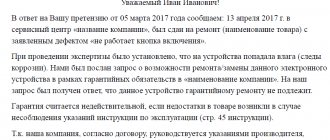I. Basic provisions on abuse of procedural rights
I. Basic provisions on abuse of procedural rights
The current legislation establishes the principle of equality of parties and adversarial rights (Articles 8, 9 of the Arbitration Procedural Code of the Russian Federation), the persons participating in the case are obliged to conscientiously use all their procedural rights (Part 2 of Article 41 of the Arbitration Procedure Code of the Russian Federation).
By virtue of Part 2 of Article 41 of the Arbitration Procedure Code of the Russian Federation, abuse of procedural rights by persons participating in the case entails for these persons the adverse consequences provided for by the Arbitration Procedure Code of the Russian Federation.
This is important to know: Renewal of a claim left without consideration
As can be seen, the legislation does not contain any specific definition of the concept of “abuse of procedural law” or a list of methods of such abuse.
In theory and judicial practice, abuse of law is the use of procedural rights belonging to a person participating in a case for an unlawful purpose, resulting in damage to other persons.
Abuse of procedural rights is externally expressed in the commission of lawful actions, but in fact it represents dishonest behavior of the participants in the process. There is no universal criterion for abuse of procedural rights as an evaluative concept. Therefore, in each specific case, taking into account the circumstances of the case, the court, at its own discretion, evaluates formally lawful actions, determining whether the party has overstepped the permitted boundaries in the exercise of its right, and deciding whether to apply the adverse consequences provided for by the Arbitration Procedure Code of the Russian Federation.
Signs of abuse of rights are:
- any abuse of rights takes place against the background of externally and formally lawful actions, representing procedural dishonesty;
- the purpose of such actions. Abuses in the judicial process are usually aimed at: delaying the process; disruption of a court hearing; obstruction of the consideration of a case and the adoption of a lawful and justified decision (Part 2 of Article 111 of the Arbitration Procedure Code of the Russian Federation); concealment of the circumstances of the case;
— abuse of rights leads to a violation of the rights and legally protected interests of the participants in the process.
In practice, methods of abuse of procedural rights that are used by an unscrupulous party are:
- untimely (unearly) submission of documents, submission of petitions, statements;
— submission of documents with deficiencies;
- untimely (late) filing of a counterclaim only with the intention of suspending the case under consideration;
— appealing acts of courts that are not subject to appeal;
- failure to appear at a court hearing, failure to provide required evidence by a person participating in the case;
- reference to non-reception of correspondence at the address available in the case materials;
— repeated appeals to court on similar grounds, etc.
Abuse of procedural rights entails adverse consequences (Part 2 of Article 41 of the Arbitration Procedure Code of the Russian Federation):
— measures of liability in the form of property impact on unscrupulous participants in the arbitration process and other persons who do not comply with the legal requirements of the court. This is an obligation to pay a certain amount of money - the imposition of court fines (Part 9 of Article 66, Part 3 of Article 225.12 of the Arbitration Procedure Code of the Russian Federation) or the imposition of legal costs (Part 2 of Article 111 of the Arbitration Procedure Code of the Russian Federation);
- refusal to carry out the actions for which a petition or statement was made (Part 5 of Article 159 of the Arbitration Procedure Code of the Russian Federation), refusal to satisfy an application for compensation for violation of the right to trial within a reasonable time or the right to execute a judicial act within a reasonable time (Part 2 of Article 1 of the Federal Law of April 30, 2010 N 68-FZ “On compensation for violation of the right to legal proceedings within a reasonable time or the right to execution of a judicial act within a reasonable time”, paragraph 43 of the Resolution of the Plenum of the Supreme Court of the Russian Federation dated March 29, 2016 N 11 “On some issues arising when considering cases of awarding compensation for violation of the right to a trial within a reasonable time or the right to execution of a judicial act within a reasonable time”).
At the same time, these are measures that can be used by the arbitration court to prevent the abuse of their procedural rights by persons participating in the case.
Below is an overview of the conclusions of the courts, set out in decisions of specific cases, on controversial issues of abuse of procedural rights in arbitration proceedings, namely:
- failure to appear at a court hearing, failure to provide required evidence by a person participating in the case;
— ways to delay the trial:
filing a counterclaim long after the initial claims were accepted;
actions to increase (decrease) the amount of claims;
filing other statements and petitions in order to delay the judicial process;
— repeated appeal to court on similar grounds;
- a reference to the failure to receive correspondence at the address available in the case materials.
Statements of claim in family disputes
The basis for the emergence of civil rights and obligations are other regulations established by law, as well as the actions of individuals and legal entities, both provided and not provided for by laws.
This is important to know: Claim for rehabilitation in a criminal case: sample
_______ himself periodically appears at work in a drunken state, behaves inappropriately, throws hysterics, insults and humiliates my daughter in every possible way in the presence of work colleagues.
Civil Code of the Russian Federation on abuse of civil rights:
- The purpose of refusing to protect a right to a person who has abused a right is not to punish that person, but to protect the rights of the person who has suffered as a result of this abuse.










